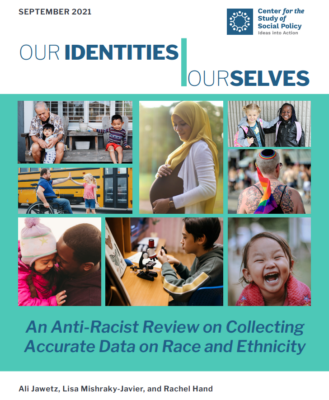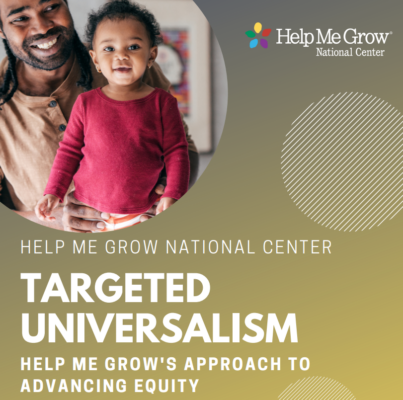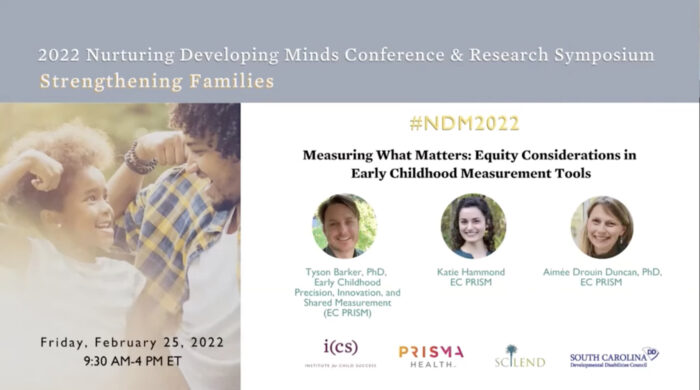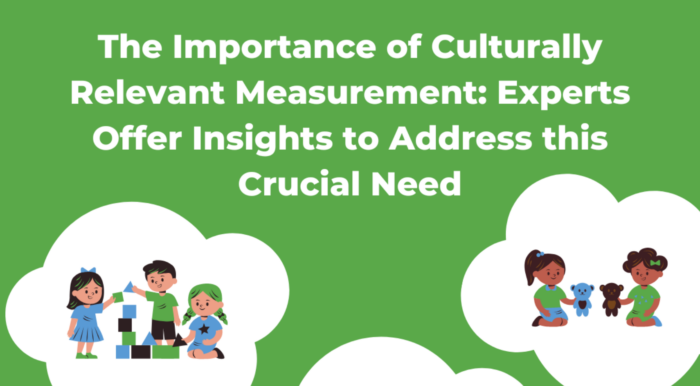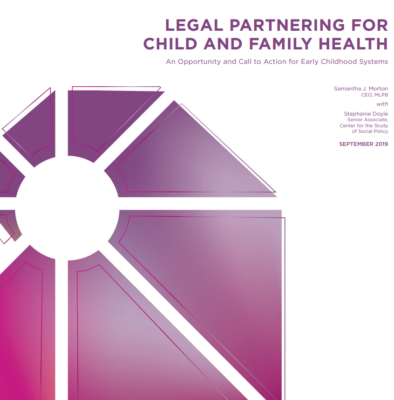Our Identities, Ourselves: A Guide to Anti-Racist Data Collection for System Leaders and Data Administrators

The Center for the Study of Social Policy, in partnership with Casey Family Programs, developed this guide to share best practices for collecting data about race, ethnicity, and other demographic information in child welfare agencies nationwide. The purpose is to produce recommendations for how caseworkers and service providers can ask young people and families about their racial and ethnic identities in more accurate, inclusive, and affirming ways, and how system leaders and data administrators can better report and incorporate that information to support them. The guide supports the collection of comprehensive demographic data to serve multiple purposes: to affirm young people and their families in their identities, to be able to identify trends and analyze racial disproportionality and disparities, to enforce anti-discrimination policy, and to develop programs and services to meet specific needs.
It is critical for systems to partner with a diversity of communities and people to shift power toward populations that have been marginalized or misrepresented by society whenever possible.
Equity and justice fundamentally require an examination of power, regarding who makes decisions that impact people’s lives. Thus, it is critical for systems to partner with a diversity of communities and people to shift power toward populations that have been marginalized or misrepresented by society whenever possible. Engaging young people and families as codevelopers in data collection and analysis protocols, and as partners in deciding how the information should be used, will result in improved systems for data collection as well as more effective feedback.
Collecting and reporting accurate data disaggregated by racial subgroups and other identity characteristics will not repair the historical and current harm done by child welfare systems to families who have been over-surveilled and unnecessarily separated. However, if data can be used to recognize problems that would otherwise be undetected, exacerbated, or ignored, then further action can be taken to eliminate inequities.
